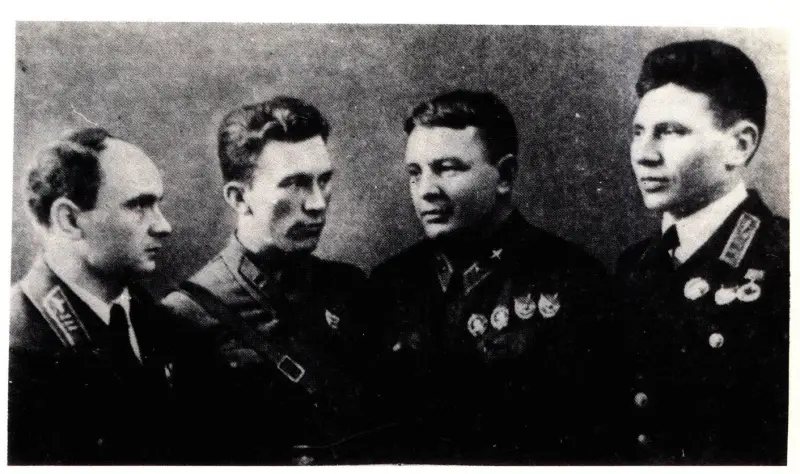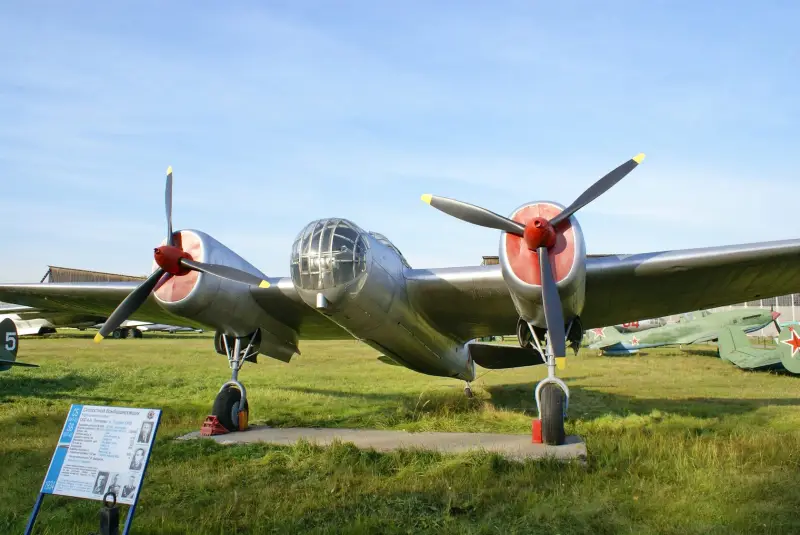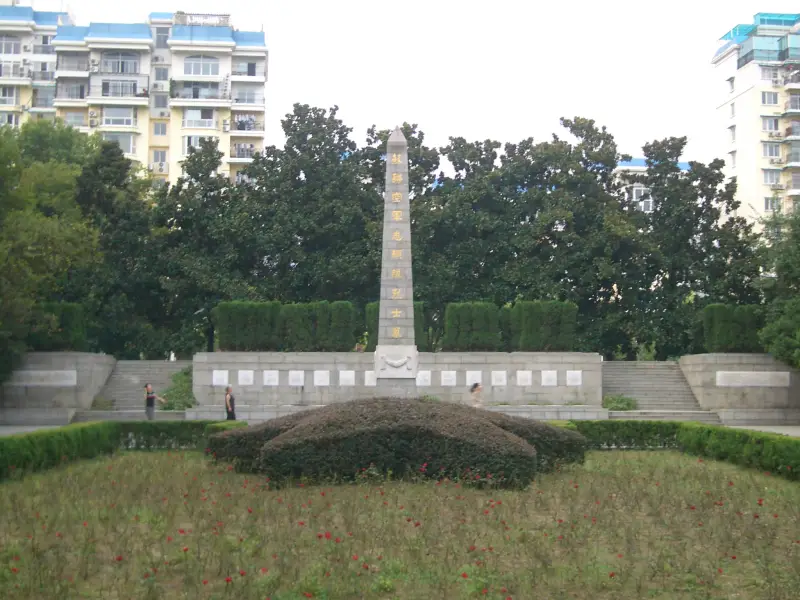Forgotten victory: about the raid of Soviet bombers on Taiwan. Surprise for the samurai

Far right is F. P. Polynin, next to him is P. V. Rychagov. Heroes of China with such different fates
The USSR comes to the rescue
In this material we complete what we started in articles Samurai go on the warpath и Chinese knot conversation.
In the fall of 1937, the USSR began supplying weapons to China, designed, as the orientalist historian R. A. Mirovitskaya writes, to meet the needs of 20 divisions. Together with weapons 5000 military specialists, instructors and volunteer pilots arrived in the Middle Kingdom.
Of course, the success of operations is determined not only by the number of divisions, the quantity and quality of weapons, and the ability to use them, but also by competent planning, which will be demonstrated shortly after the events discussed here by the Polish and French campaigns of the Wehrmacht, the Great Patriotic War, and decades later by the Arab-Israeli wars.
Accordingly, the future famous commanders V.I. Chuikov and P.S. Rybalko went to China as military advisers.
In general, our military advisers have been there since the 1920s. In particular, V.K. Blucher. True, it is not very clear what Chiang Kai-shek, a professional military man who knew the theater of combat operations well, could have advised; a future marshal who did not have a major education, with a muddy biography, and whose incompetence manifested itself in 1938 on Hassan?
Regarding arms supplies, we are interested in aircraft. Among them were the newest SB bombers. Our specialists also serviced them, since the Celestial Empire had not previously imported aircraft from the USSR, and the Chinese had problems operating unfamiliar machines.
Historian S. A. Averchenko quotes lines from a report to the Intelligence Directorate of the Red Army of the military attache at the Plenipotentiary Representative Office of the USSR in China, Corps Commander E. D. Lepin:
And this is in the face of superior enemy forces: in total, as Chinese Air Force historian A. Demin writes, in Manchuria and Korea there were only up to 420 combat aircraft in service (excluding the 3rd and 9th air regiments) and up to 100 aircraft in reserve
The advantage of the Japanese was expressed not only in numbers, but also in skill, largely due to the strict and effective training of the pilots, as evidenced by the memoirs of the best of them, Saburo Sakai.
At the beginning of hostilities, the Kuomintang had 296 aircraft and only 230 mechanics for them.
The result of the very first air battles turned out to be predictable: by November 1937, the number of Chinese Air Forces was reduced to 30 aircraft.
Our specialists did everything possible to prepare their Chinese colleagues in a short time, paying special attention to those who had to work with the latest high-speed - up to 420 km/h - SB.
The mentioned speed - by the way, higher than that of the American Martin B-10s available to Chiang Kai-shek - allowed our pilots to evade pursuit by enemy fighters.

In general, Soviet supplies allowed the Chinese to make up for losses:
If we consider the given data from the financial side, then, according to A. Demin, by 1940
The Chinese, despite the shortcomings noted by Corps Commander E.D. Lepin, on the whole turned out to be diligent students, but without our help, the Kuomintang Air Force faced a new defeat. It will overtake them after the Soviet specialists return home, which is discussed below.
The defeat of the Air Force made the success of ground operations impossible. For already in the second half of the 1930s, the correctness of the Italian Major General Giulio Douhet became obvious: victory on land is preceded by air supremacy.
The Japanese were fully aware of this:
Advisors, pilots, planes - a test of strength
What was needed was a success that could boost the morale of the Kuomintang Air Force. Chinese intelligence managed to find out that there was an airfield in Taiwan where unmasked, disassembled planes were located in open areas.
The Japanese knew about the presence of Soviet pilots in China and therefore refused to unload containers with dismantled vehicles in Shanghai - it was too dangerous. But Taiwan, as it seemed to them, was just right.
In this situation, a military adviser and one of the most controversial figures of the Red Army elite, P.V. Rychagov - in Spain he shot down over 20 aircraft, but there is no documented information about his direct combat activities in China - with a group of colleagues, including future Air Chief Marshal P.F. Zhigarev, developed an operation with the goal of inflicting maximum damage on the enemy air group in Taiwan.
The SB under the command of “General Fyn Po” - Captain Fyodor Petrovich Polynin - were intended for the strike.
But before I talk about the raid itself, I will mention one of the heroes of the Spanish battles - the legendary Grigory Illarionovich Thor. Back in Irkutsk, at the factory airfield, where the security forces were being assembled to be sent to China, he intensively prepared pilots for operations in any weather conditions and practiced navigation skills with them on various terrain.
According to A. Demin, G. I. Thor arrived in China in the fall of 1937 and wanted to take part in the hostilities, but the command requested that he, a valuable specialist, return back. I had to transfer the group to F.P. Polynin. The following year, G.I. Thor returned to the Celestial Empire as the chief military adviser.
An interesting detail in the context of today: special missions of groups of pilots to China took place under the letters X and the now so familiar Z.
Now about the raid. The task facing F. P. Polynin’s group was not an easy one: to rise from the Nanchang airfield, fly for about 8 hours at an altitude of approximately 4-5 thousand meters, and without oxygen masks.
Fyodor Petrovich left memories of that operation:
A little aside: twenty-nine years later, the Israeli Air Force acted according to a similar scheme during Operation Moked, when, unexpectedly for the Egyptians, their airfields were attacked from the Mediterranean Sea, achieving air superiority within a matter of hours, which not least became the key to the IDF’s victory. in the Six Day War.
The Japanese paid dearly for their carelessness:
The group returned without losses, and the commandant of the Japanese base in Taiwan, as befits a samurai, in order to avoid shame, committed seppuku. Chiang Kai-shek's wife, Soong Meiling, who had significant political weight in the Kuomintang, personally came to congratulate the Soviet pilots.
The Mikado's Failed Gift
Of course, the Japanese sought to avenge the Taiwan disaster, and at the same time present a gift to the Mikado on his birthday - to bomb Wuhan, where, after the fall of Nanjing a year earlier, the Chinese government had moved.
On April 29, 1938, the Japanese launched a raid with 45 aircraft, which were in for an unpleasant surprise - 65 fighters flown by Soviet and Chinese pilots. Result: in 30 minutes the samurai lost 11 fighters and 10 bombers. Our losses are 12 aircraft.
However, the Mikado was given a gift seven years later by Army General Douglas MacArthur, who freed him from the dock and, instead of the scaffold or the gloomy but well-deserved walls of a prison cell, allowed him to spend the rest of his years studying marine biology.
The operations briefly described with the participation of Soviet volunteers were not the only ones in the skies of China, and all of them made a significant contribution to the victory over the Empire of the Rising Sun, an extremely dangerous enemy.
It was said above about the high class of Japanese pilots. The quality of their vehicles also turned out to be at the same level, especially in 1938, when the Imperial Air Force received the Ki-27 fighter, which reached speeds of up to 450 km/h. In this situation, our SB pilots had to fly at an altitude of 7500-8500 m, with far from imperfect oxygen equipment. But we managed.
Raid on Taiwan: geopolitical consequences
Did the raid on Taiwan and the success over Wuhan have geopolitical significance? I think so, because it was one of the reasons that forced the Japanese to conclude a neutrality agreement with the USSR on April 13, 1941, which was so valuable to us in the first two years of the Great Patriotic War.
However, even if indirect, its downside was the reduction of Soviet military assistance to the Kuomintang, and by May 1940, our last volunteer returned home. Only the instructors remained.
Without us
The reason for our departure from China is obvious: the USSR was preparing for a confrontation with the Wehrmacht, and the pilots were needed at home.
From the point of view of diplomacy, after the victory at Khalkhin Gol and the conclusion of the Molotov-Ribbentrop Pact, we did not seek to aggravate relations with Japan, which had a similar desire.
Thus, in September 1939, Prince F. Konoe, in a conversation with the German Ambassador O. Ott, admitted that the empire would need 2 years to achieve the level of armament and mechanization that the Red Army showed in the battles at Khalkhin Gol.
And already on September 9, 1939, the Ambassador in Moscow S. Togo suggested that we conclude a truce and sign a trade agreement.
After this, albeit with twists and turns, the dialogue between Moscow and Tokyo began to improve, culminating in the aforementioned non-aggression pact.
Of course, under these conditions, Moscow did not see it as advisable for our advisers and pilots to be in China.
But in the Celestial Empire, the memory of military cooperation with us is alive, as is gratitude for help in the most difficult period stories.

Monument to Soviet volunteer pilots in Wuhan
Thus, A. Demin quotes the words of the defense attache at the Chinese Embassy in Russia, Major General Kui Yanwei, who, speaking at a military-historical conference in Moscow in 2020, said:
Same sky, different destinies
P.V. Rychagov at the age of 29 became the head of the Main Directorate of the Red Army Air Force, but was later removed from his post, arrested on June 24, 1941, and executed in the fall. There is still a lot of uncertainty about the circumstances of his case. Take what was allegedly thrown at J.V. Stalin: “You make us fly on coffins" The only source of the quote is the memoirs of Admiral I. S. Isakov.
Pavel should systematize the experience gained in Spain and China, study, and not lead management. Main. After his removal, he was sent to study at the Military Academy of the General Staff, but then he was arrested and died.
F. P. Polynin, returning to his homeland, received the rank of colonel and the honored star of Hero of the Soviet Union.
Fyodor Petrovich passed the Finnish. On June 22, 1941, he met as the commander of the 13th Bomber Division stationed in Bobruisk - one of the few on the Western Front, which already on the first day of the war inflicted significant losses on the Germans: defeated tank column in the Bialy Podlaski area.
F.P. Polynin ended the war in Poland as commander of the Air Force of that country. He rose to the rank of Colonel General.
Grigory Illarionovich Thor - in the summer of 1941, major general of the Air Force and deputy commander of the 62nd heavy air division of the Southwestern Front - was wounded in the Kiev cauldron, but did not break in the Nazi dungeons, put together an anti-fascist group and was shot by the Nazis in 1943 .
Such dissimilar destinies united by the sky of China... Eternal memory.
Использованная литература:
Volkov I.V., Ivanov I.V. Experience of using Soviet bomber aircraft in China for the USSR Air Force (1937 - 1939)
Demin A.A. Aviation of the Great Neighbor. Book 1. At the origins of Chinese aviation. -M., Aviation Promotion Foundation “Russian Knights”, 2008.
Ermachenko A.S., Minakov S.S., Strukov A.V., Lupaerva N.N. Relations between the USSR and Japan on the eve of the Great Patriotic War
Mirovitskaya R.A. Relations between the USSR and China during the crisis of the Versailles-Washington system of international relations (1931 – 1937)
Information